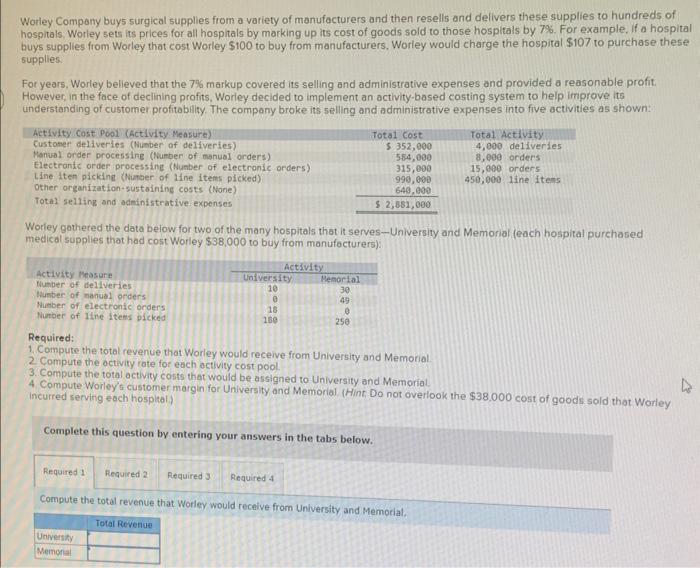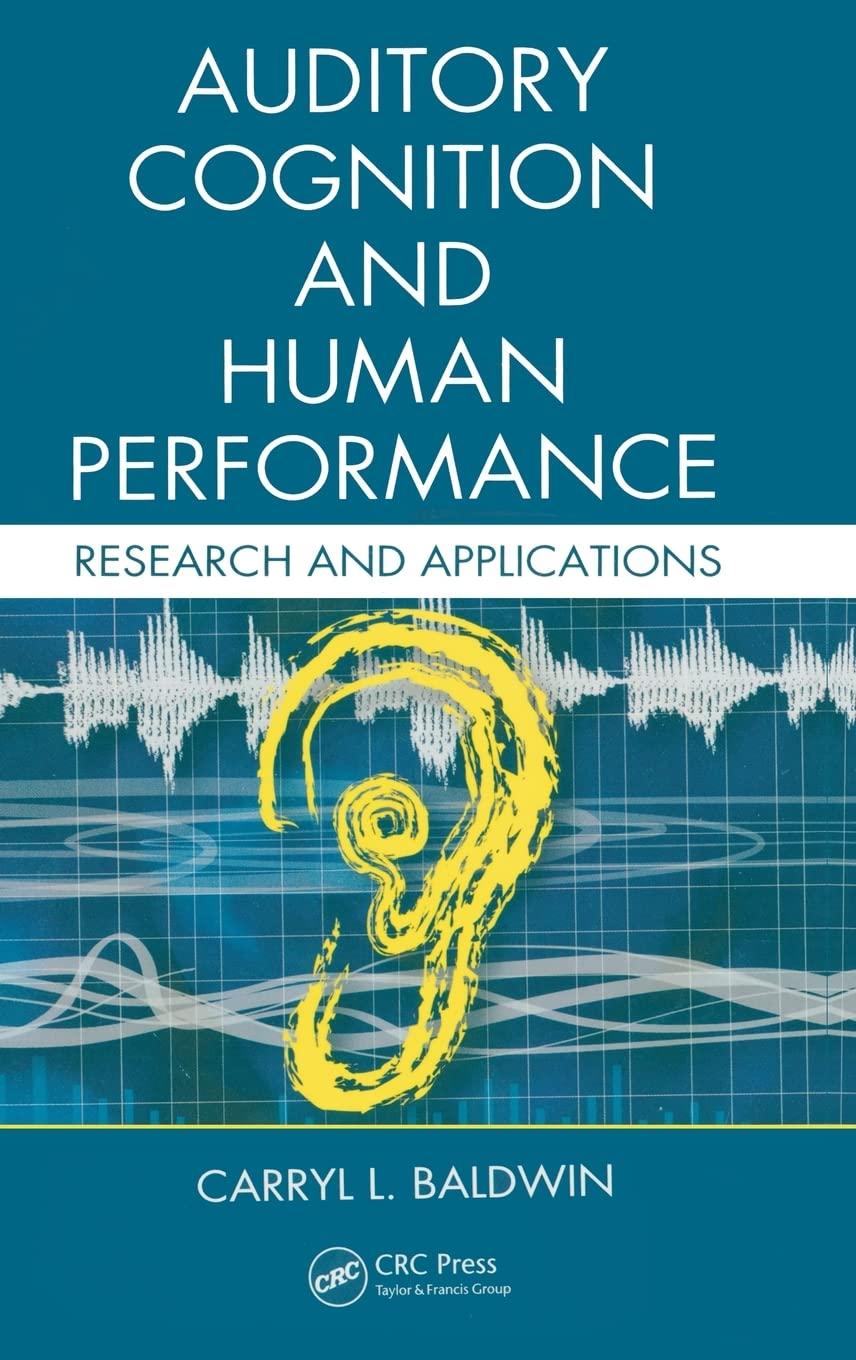Woriey Company buys surgical supplies from a variety of manufacturers and then resells and delivers these supplies to hundreds of hospitals. Worley sets its prices for all hospitals by marking up its cost of goods sold to those hospitals by 7%. For example. If a hospital buys supplies from Worley that cost Worley $100 to buy from manufacturers. Worley would charge the hospital $107 to purchase these supplies: For years. Worley believed that the 7% markup covered its selling and administrative expenses and provided a reasonable profit. However, in the face of declining profits, Worley decided to implement an activity-based costing system to help improve its understanding of customer profitability. The company broke its selling and administrative expenses into five activities as shown: Worley gathered the data below for two of the many hospitals that it serves-University and Memorial (each hospital purchased medical supplies that had cost Worley $38,000 to buy from manufocturers): Required: 1. Compure the total revenue that Worley would receive from University and Memorial. 2 Compute the octivity rate for each octivity cost pool. 3. Compute the total activity costs that would be assigned to University and Memorial. 4 Compute Worley's customer margin for University and Memorial (Hint. Do not overlook the $38,000 cost of goods sold that Worley incurred serving each hospital.) Complete this question by entering your answers in the tabs below. Compute the total revenue that Worley would receive from University and Memorial. Compute the activity rate for each activity cost pool. (Round your answers to 2 decimal places.) Compute the total activity costs that would be assigned to University and Memorial. (Round your intermediate calculations to 2 decimal places and final answer to the nearest whole number.) Compute Worley's customer margin for University and Memorial. (Hint: Do not overlook the $38,000 cost of goods sold that Worley incurred serving each hospital.) (Loss amounts should be indicated with a minus sign. Round your intermediate calculations to 2 decimal places. Round your final answers to the nearest whole number.)










